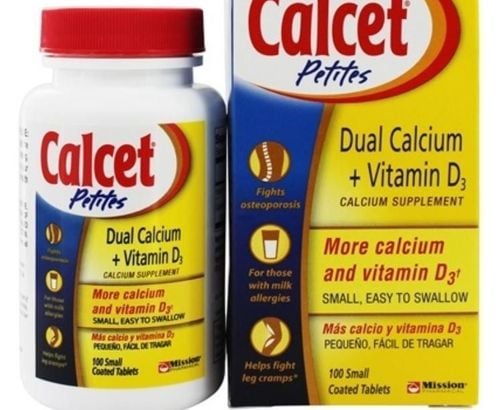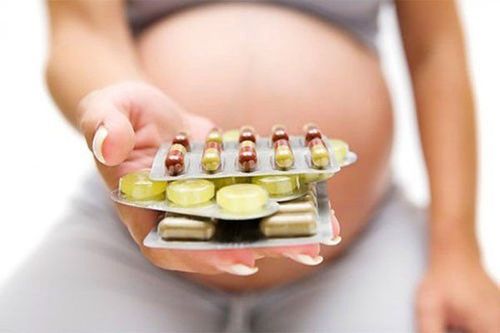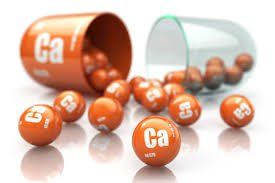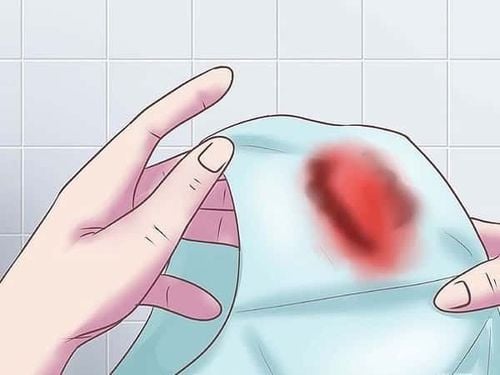This is an automatically translated article.
The article was professionally consulted by Doctor Department of Pediatrics - Neonatology, Vinmec Hai Phong International General Hospital.
Children at risk of vitamin D deficiency because they do not synthesize enough vitamin D from sunlight, or because they do not get enough from food, need to be supplemented in the form of drugs to prevent vitamin D deficiency. Parents please refer to the article Write below to know how to give your child the right amount of vitamin D supplements.
1. Vitamin D dosage for human body
For children:
Exclusively or partially breastfed babies (with formula) need to be supplemented with vitamin D at a dose of 400 IU/day, starting a few days after birth. Stop taking vitamin D when the baby has been weaned and drink 1 liter of milk and supplement with vitamin D daily (formula for babies < 12 months or cow's milk for babies > 12 months). If your baby drinks less than 1 liter of milk per day, she still needs 400 IU of vitamin D per day. Continue giving vitamin D to your child until he or she drinks 1 liter of vitamin D-rich milk per day. Older children who do not get enough 400 IU of vitamin D per day through food also need a vitamin D supplement of 400 IU per day. Children who are at high risk for vitamin D deficiency in cases where they take certain medications or have certain chronic conditions may need higher doses of vitamin D supplements. Common forms of vitamin D supplements for children:
Sterogyl (Alcohol-soluble Vitamin D2, 1 drop = 400 IU), take 1 drop per day. Infadin (Vitamin D2 soluble, 1 drop = 800 IU), take 1 drop per day or every other day. Vitamin D3 B.O.N (Vitamin D3 oil, 200,000 IU/1ml/tube), give children 1 ampoule every 6 months (can increase to 2 amps every 6 months if the child is less exposed to light or has dark skin).
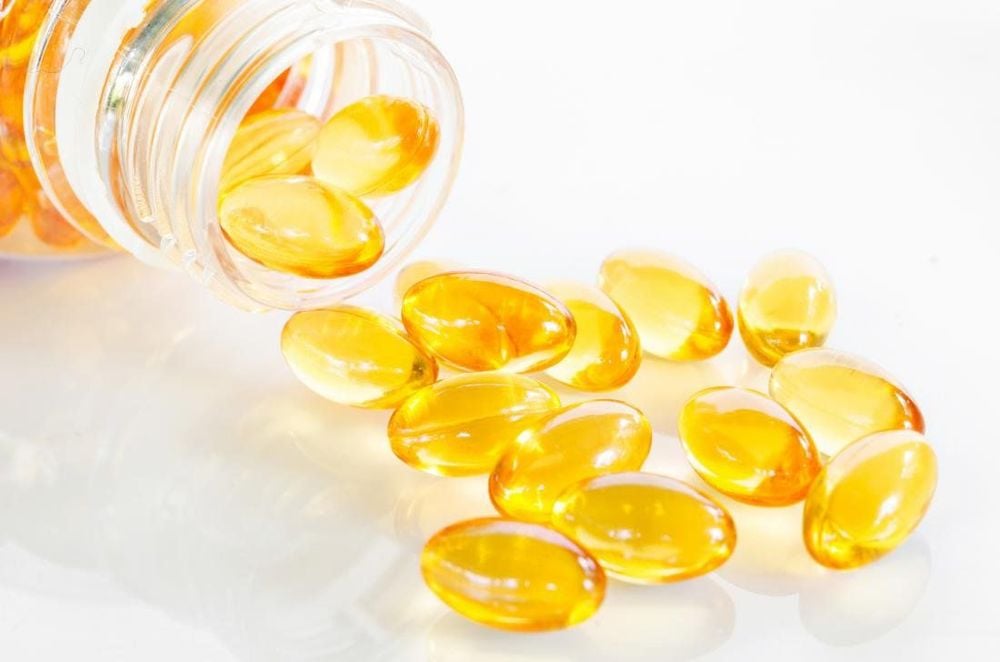
For adults:
Need 600 IU of vitamin D daily for people 19-70 years old and supplement 800 IU daily for people over 70 years old.
Supplement the dose of vitamin D suitable for both children and adults.
Trắc nghiệm: Sự phát triển tinh thần, vận động của bé thế nào là đúng chuẩn?
Khi nào bé biết nói, biết hóng chuyện hay biết cầm cốc là "đúng chuẩn"? Điểm xem bạn biết được bao nhiêu mốc phát triển tinh thần, vận động "đúng chuẩn" của bé nhé!The following content is prepared under supervision of Thạc sĩ, Bác sĩ y khoa, Ma Văn Thấm , Nhi , Phòng khám Đa khoa Quốc tế Vinmec Dương Đông(Phú Quốc)
2. How dangerous is vitamin D poisoning?
Vitamin D poisoning is a very rare but potentially dangerous condition, poisoning occurs when the vitamin D content in the body is too high (25-hydroxy vitamin D content in the blood is continuously > 200 ng/ml. considered potentially toxic to vitamin D). The cause is usually due to the body being supplemented with vitamin D in too large a dose, not at all due to diet or exposure to sunlight. The body has the ability to regulate the amount of vitamin D synthesized by ultraviolet rays and foods usually do not contain too much vitamin D.
The main consequence of vitamin D poisoning is to make the patient hypercalcemia, leading to loss of appetite, nausea and vomiting. The patient feels tired and urinates frequently. High blood calcium can cause calcification of blood vessels and tissues, damaging the heart, blood vessels and kidneys. The study found that taking both calcium (1,000 mg/day) and vitamin D (400 IU) in premenopausal women increased the risk of kidney stones by 17% over 7 years.
Treatment of vitamin D toxicity includes immediately stopping high doses of vitamin D, stopping calcium supplements, maintaining a low-calcium diet, drinking plenty of water, or getting fluids. The doctor may prescribe corticosteroids or diuretics to increase calcium excretion to reduce serum calcium levels.
In case of acute vitamin D poisoning, detected in time after the patient has just taken a high dose of vitamin D, the doctor can induce vomiting, wash the patient's stomach to prevent further absorption of vitamin D. body.
3. How to supplement vitamin D for children

Sunbathing is an important measure to supplement vitamin D for children
Daily need for vitamin D is from 400 - 600UI/day, this need is not much different between children and adults. In the elderly, due to poor absorption, the need is slightly higher but not more than 1,000 UI/day, which means that when blood tests are not deficient in vitamin D but there is no condition of sunbathing, it is still possible to supplement the required dose. Daily requirement, but when vitamin D deficiency is present, a higher therapeutic dose can be used up to 4,000 IU/day, the duration of treatment is about 3 months. When vitamin D returns to normal, it is reduced to the daily dose again.
To prevent rickets, children should sunbathe daily, every day 20-30 minutes in the morning is best (before 9am), in case there is no condition to sunbathe such as born in winter or at home. In cramped quarters... children must be supplemented with vitamin D from birth after 1 week, taking it until 2 years of age, and when children are older, they can play outdoors more or have no symptoms of rickets. No need to drink anymore.
Vitamin D supplements can be given to children as follows:
For babies from 2 weeks old to 18 months old, take 800-1,000 IU daily continuously (if the baby is healthy): 1,500 IU (if the baby gets little sunlight). ) and 2,000 IU (if your baby has a dark skin tone). Children from 18 months to 5 years old only use the above dose in winter, with little sunlight. For children with rickets, it is necessary to take 1,200 -5,000 IU/day for 4 weeks, then continue to take a prophylactic dose. However, all must be prescribed by a doctor after examination, mothers should not arbitrarily give vitamin D supplements to their children because it can cause unwanted consequences. Include a full range of food groups in your child's diet to ensure that they are provided with enough nutrients. Vitamin D plays an important role in the development of children, so parents need to pay attention to supplement enough for the baby. If you are concerned about vitamin D deficiency in your baby, ask your doctor for a blood test. For babies who are exclusively breastfed, born in the winter, because of certain conditions that cannot be sunbathing... they also need to ask a doctor to supplement vitamin D for the child. Even older children and adults who are not exposed to the sun still need vitamin D supplements. Children who are obese are more likely to have vitamin D deficiency.
Vitamin D supplementation for children orally in the morning or afternoon, when hungry or full, does not affect the absorption of vitamin D, but if taken with calcium, it should be taken in the morning, because calcium is taken in the evening. risk of kidney stones. Vitamin D belongs to the fat-soluble group, so when taken, it will be accumulated in the liver for the body to use gradually, so in addition to maintaining the daily dose, it is also possible to take high doses periodically (according to directed by Doctor).
Please dial HOTLINE for more information or register for an appointment HERE. Download MyVinmec app to make appointments faster and to manage your bookings easily.






